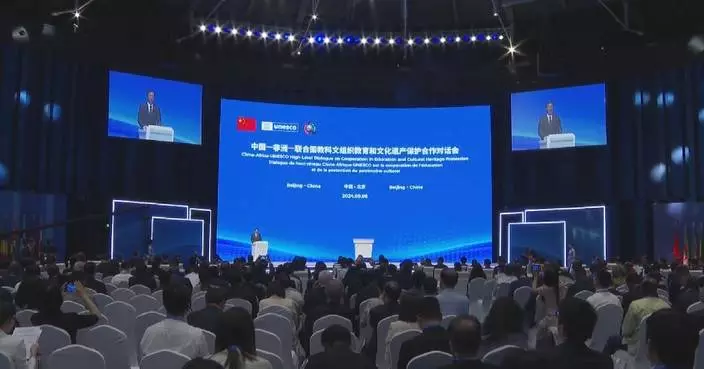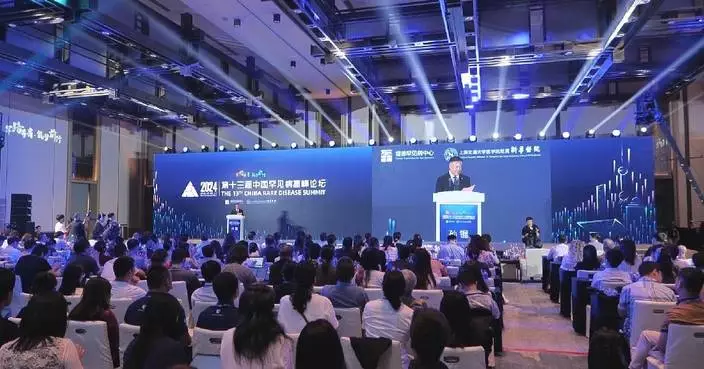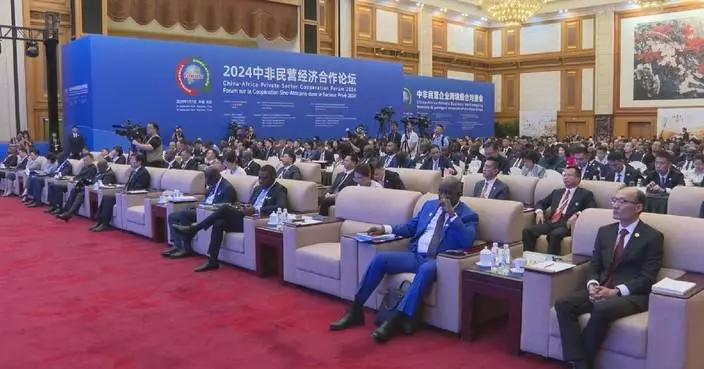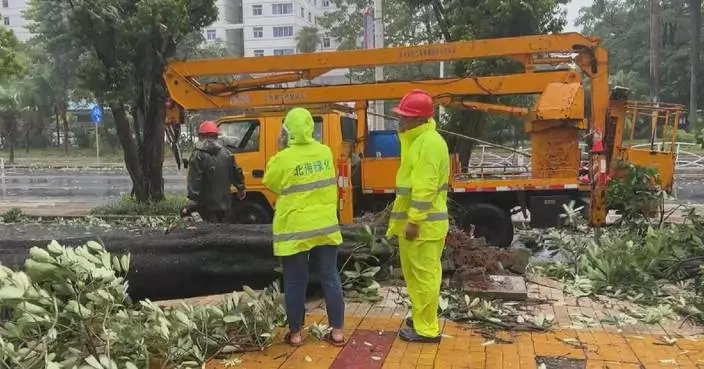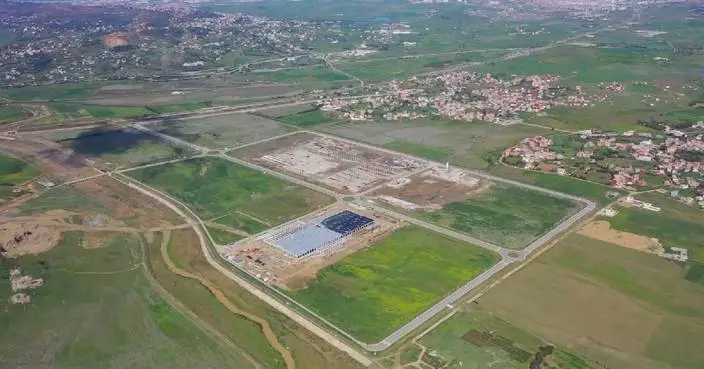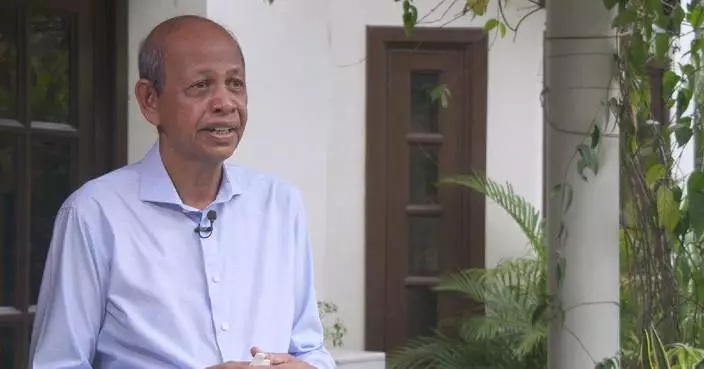The awe-inspiring Zhuke tripod, a 400 kilo bronze behemoth archived at east China's Anhui Province towering at nearly four feet high with an immense 87 centimeters wide, is a staggering feat of ancient metalwork.
The Wuwangdun tomb excavated in Anhui has been confirmed as the largest and highest-level tomb from ancient Chu state (704 BC - 223 BC) dating back to more than 2,200 years, the National Cultural Heritage Administration said on April 16.
Archaeologists focused on excavating the main vertical earth-pit tomb, confirming it as a large structure housing a wooden chambered burial area.
This collection of Anhui Museum is very similar to the large bronze "ding" (tripod) in size and structure, archeological experts said.
The ingenious "sectional casting" method was employed during its casting process more than 2,000 years ago.
Each component was cast separately before being joined, evidenced by the protruding "range lines" along the tripod's belly where the sections united.
Beyond its sheer scale, the Zhuke tripod captivates with its unique form. The curved shoulders give way to a rounded potbelly resting on three sturdy legs, with two handles adorning the sides.
"This type of ding (tripod) is a very distinctive instrument in Chu culture, and its main function is the same as the 'wok' cauldron in the Central Plains, which is a large ritual instrument used for cooking sacrifices in sacrificial activities," said Cheng Lu, associate research fellow at Anhui Museum.
There are 12 inscribed words at the edge of its mouth, beginning with "Zhu Ke," after which it is now named. On its front feet and bottom were inscribed two blessing words "An Bang," literally meaning "peaceful state."
It was unearthed in 1933 from the tomb of the King of You (about 237-228 BC) of the ancient state of Chu at Shou County of Anhui Province. The tripod is so precious and of such high historical value that it has been chosen as the prototype of the National Sacrificial Ding Tripod used at every memorial ceremony of the 1937 Nanjing Massacre since 2014.
For the Chu, who dominated the Yangtze regions for centuries during the Spring and Autumn Period (770 BC to 476 BC) and the Warring States Period (475 BC to 221 BC), bronze ritual wares were not mere objects but symbols of state power.
Their bronzes combined the solemn dignity of the Central Plains tradition with vivid, dynamic decorations - forging a distinct aesthetic.
This daring departure from convention, a bold innovation by the free-spirited Chu people, also marked their rise to assert a unique cultural identity as their dominion grew.

Grand "Zhuke" tripod showcases inclusive culture of China's ancient Chu state
Known primarily for its coal production, the city of Taiyuan in Shanxi Province is undergoing a cultural transformation. As part of China's booming concert economy, Taiyuan is actively seeking to provide unforgettable experiences for music fans.
Local authorities are supporting businesses in capitalizing on the growing demand for immersive concert experiences.
Taiyuan has implemented innovative initiatives. The city offers free public transportation for concert attendees, including bus and subway rides, both during the concert period and for three days before and after the event .
Taiyuan's commitment to creating a vibrant concert atmosphere is evident throughout the city. Giant banners and posters promote upcoming events, while various support activities further enhance the experience.
At a recent concert, a CGTN correspondent witnessed the city's dedication to providing a memorable experience. Each fan was greeted with a personalized souvenir bag filled with local specialties. Additionally, a captivating drone performance delighted the audience, adding an extra layer of excitement to the event.
"We have both also been to several concerts before. But this is the first time we've enjoyed various perks. Some shops are offering free merchandise. There are shuttle buses. The concert ticket also provides free admission to other local attractions. I think it is really nice," a concertgoer said.
"I have attended several concerts in Taiyuan where I have had really great experiences," another concert fan said.
Taiyuan's thoughtful initiatives have not only delighted concertgoers but also stimulated the city's consumer activity.
"From April to September, Taiyuan hosted more than 10 concerts. We could feel the enthusiasm of the fans at each event. There was a noticeable increase in hotel bookings as well," said Ma Shuting, marketing manager of a local hotel.
The concert period has also boosted the street-stall economy. The area around the venue has been transformed into a vibrant marketplace, with hundreds of stalls offering a diverse range of goods and services, from snacks and concert merchandise to beauty treatments.
"Business is doing quite well because there are many people coming from both out of town and locally. The daily revenue is approximately between 2,000 and 3,000 yuan (about 282 to 423 U.S. dollars)," a vendor told CGTN.
To solidify its position as a leading performing arts center in Northern China, the local government has made a significant commitment to fostering the concert economy.
"All 11 government departments in Taiyuan have jointly introduced several measures to support the development of the concert economy. For concert organizers in Taiyuan that meet the criteria, subsidies ranging from 150,000 yuan to 800,000 yuan (about 21,200 to 113,000 U.S. dollars) will be provided. Additionally, the city government has also established a special task force to ensure the smooth running of large-scale concerts," said Liu Rui, deputy director of the Taiyuan Bureau of Culture and Tourism.
The concert economy holds immense potential for economic growth, as demonstrated by the impact of Taylor Swift and Coldplay concerts on Singapore's GDP, which was boosted by around 0.25 percent.
Taiyuan is positioning itself as a major player in the concert industry, with over 30 concerts scheduled for this year alone. These events are expected to attract nearly 800,000 fans and generate tens of billions of yuan in consumer spending.
The city's commitment to the concert economy reflects its proactive pursuit of new growth drivers. This not only boosts consumption in the culture and tourism sector but also contributes to the broader economic transition toward high-quality growth.
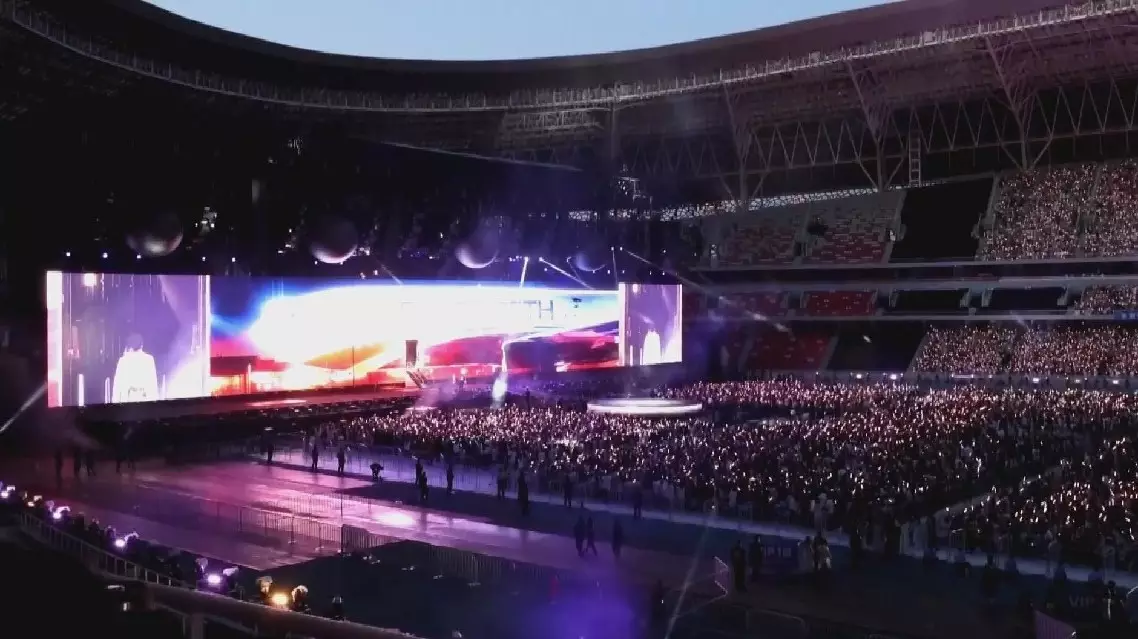
Taiyuan's thriving concert economy boosts cultural, tourism growth




